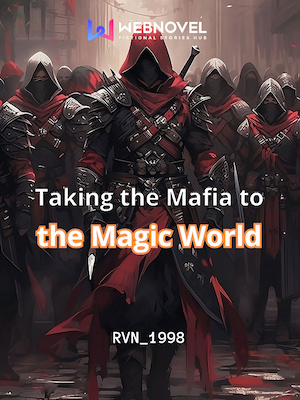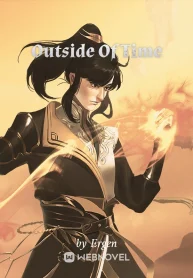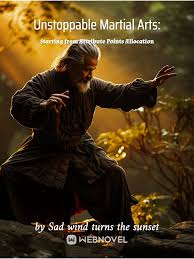Chapter 162: Negotiations
Murat, leading his cavalry, pursued the Austrian cavalry relentlessly until they reached the vicinity of an Austrian redoubt. The cannons on the redoubt opened fire fiercely, forcing Murat to halt the pursuit.
Murat and his cavalry withdrew out of range of the redoubt's cannons. They took a moment to regroup and display their prowess before turning their attention to catching up with Napoleon's main force.
When he caught up with Napoleon, Murat, with an air of self-importance, recounted the recent battle to him in detail.
"Ah, Murat, why do you persist in such thoughtless actions?" Napoleon remarked. "Why didn't you consider escaping first to draw them into pursuit? It would be easier to control the distance and engage in ranged combat. In the pursuit, they would become more zealous and less aware of their losses. By the time they realized, their casualties would be significant, and they'd have to retreat. This way, not only are they slower, but you could catch up and eliminate even more, then continue pursuing, minimizing your losses while increasing theirs. Isn't that better? You, my friend, really..."
Napoleon had initially thought about using a comment like "too young, too naive" on Murat, but then he remembered that Murat was a few years older than himself, so he bit his tongue.
Although Murat's performance in the battle wasn't as flawless as Napoleon had hoped, the fact that two hundred French cavalry had defeated five times their number of Austrian cavalry still left the Austrians highly unnerved.
Under Archduke Charles's orders, the Austrian cavalry set out again to search for Napoleon's main force. This time, they thoroughly dispersed their cavalry, with ten men in each squad, to search. They were instructed not to initiate attacks unless they encountered isolated French cavalrymen. When the French cavalry showed aggression, the Austrians were allowed to withdraw at their discretion.
The information received by the Austrians indicated that Napoleon's main force had not entered any cities but had rapidly taken control of vast stretches of the countryside. They obtained plentiful supplies in those areas and gathered the villagers to educate them on revolutionary principles.
Archduke Charles knew that he couldn't allow the French to continue this chaos, as any area visited by the French would likely become a hotbed of rebellion. However, he was wary of a direct confrontation with the French army. Luckily, the Austrians had a clear numerical advantage in cavalry. They decided to use this advantage to attack the scattered French forces and the locals who supported them.
As a result, both sides engaged in a series of small-scale battles continuously. Each side claimed victory in these skirmishes, depending on their perspective.
The negotiation over the price was heated, but eventually, both sides reached an agreement. The Austrians not only gave up the territories they had already lost but also paid France a compensation of ten million francs. Napoleon grumbled, "For a nation as vast as Austria, they only managed to squeeze out so little. Compared to the riches of the Papal States, the Emperor is truly stingy."
Such a price was equivalent to selling his own brethren, how could Napoleon agree? However, as a soldier, he had to obey orders, and so, he reluctantly prepared to depart from Austrian soil.
During this time, Napoleon continued to meet with representatives of the peasants in his controlled regions. He assured them that, upon his departure, he would leave a portion of the weaponry with them. He had already taught them how to use various weapons.
"My brethren, I must leave you now. Once we depart, the nobles will surely attempt to reclaim what was lost. They will desire to reclaim their possessions and may even be more relentless. However, as long as you hold a weapon in your hand, they cannot oppress you as they did before.
My brethren, remember all that we have taught you and hold on to the weapons we leave behind.
In the future, when the nobles see you armed, they will approach you with a friendly smile, reduce your taxes, and act as if they are your friends. But my brethren, remember, it's not because they have grown kinder or genuinely like you; it's because they see you bearing arms. As long as you hold a weapon, even a black bear will appear gentle.
They may pretend to care for you, saying, 'Friend, why carry such a heavy weapon? This place is safe, and we are all friends. Why do you need to bear this heavy burden?'
But my brethren, never lay down your arms. For once you do, they will shed their sheepskins and reveal the wolves they truly are. They will devour you completely.
My brethren, be vigilant against those who want you to disarm. They are all serpents, wolves in sheep's clothing. While they speak with oily tongues, their hearts are filled with a hunger for destruction.
Our brethren, how do we deal with these wolves? When a friend brings wine, welcome him. But if a wolf approaches, the only welcome he'll receive is from the barrel of a gun. So, my brethren, hold your weapons close, for they represent freedom, and they shape your destiny."
As Napoleon's army began its gradual withdrawal, he left behind a substantial amount of weapons for the peasants. He even assisted them in forming their own associations. Napoleon believed that, for a considerable time, this region would remain a thorn in the side of the Austrians.







